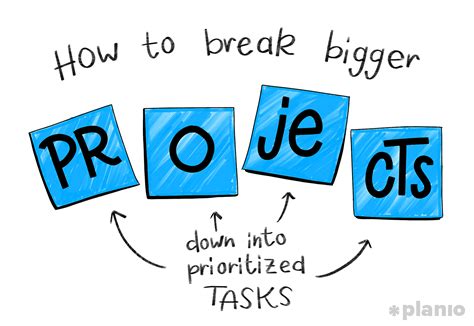In today's fast-paced world, effective time management is not just a desirable trait but an essential skill for achieving success in both personal and professional spheres. The ability to make the most of your time can have a significant impact on your productivity levels and overall efficiency. However, mastering this skill requires a deliberate and conscious effort.
Instead of seeing time as a limited resource that needs to be managed, what if we viewed it as a valuable asset that can be optimized to yield greater returns? By adopting a proactive approach to time management, you can unlock your true potential, enhance your focus, and accomplish more in less time.
1. Prioritize with Purpose: Without clear priorities, you are likely to find yourself easily overwhelmed and struggling to complete tasks in a timely manner. Take the time to identify your most essential goals and allocate your time accordingly.
2. Plan Strategically: Effective planning is the foundation of successful time management. Whether you prefer traditional to-do lists or digital task managers, establishing a clear plan of action helps you stay organized and ensures that you can make the most of each day.
3. Break It Down: Large and complex tasks can often seem daunting and lead to procrastination. To overcome this, break down these tasks into smaller, more manageable chunks. This not only makes the task feel less overwhelming but also allows you to allocate time more efficiently.
4. Eliminate Time-Wasters: Time-wasting activities, such as excessive social media scrolling or constant email checking, can eat away at your productivity. Identify these time-draining habits and eliminate or minimize them to maximize your efficiency.
5. Harness the Power of Technology: Embrace technology tools and apps specifically designed for time management. From calendar apps to project management software, these tools can help you stay organized, prioritize tasks, and track your progress.
Focus on Setting Clear Objectives and Priorities

When it comes to managing your time effectively and maximizing productivity, one crucial aspect is setting clear goals and priorities. Having a clear understanding of what you want to achieve and what tasks should be prioritized can greatly enhance your efficiency in managing your time.
Begin by defining your objectives, both long-term and short-term. Long-term goals provide you with a broader vision and a sense of direction, while short-term goals give you specific targets to work towards. By breaking down your long-term goals into smaller, more manageable tasks, you can maintain focus and make progress step by step.
Additionally, it is important to prioritize your tasks and identify which ones are most important and urgent. Consider the impact and consequences of each task, and rank them accordingly. This will help you allocate your time and energy efficiently, ensuring that you focus on tasks that align with your objectives and contribute to your overall success.
It can be helpful to create a to-do list or use time management tools to keep track of your tasks and deadlines. By organizing your tasks in a structured manner, you will not only have a clear overview of what needs to be done, but you will also be able to prioritize effectively and avoid feeling overwhelmed.
- Set clear objectives and break them down into manageable tasks
- Consider the importance and urgency of each task when prioritizing
- Utilize to-do lists or time management tools to stay organized
By setting clear goals and priorities, you will be able to align your efforts with your objectives, make efficient use of your time, and ultimately enhance your productivity and effectiveness.
Create a Daily Schedule
Organizing your day effectively is a key factor in maximizing productivity and achieving your goals. By creating a structured daily schedule, you can efficiently manage your time and prioritize tasks. This section will provide practical guidance on how to develop a personalized daily schedule that suits your specific needs and preferences.
1. Structure your day: Begin by dividing your day into blocks of time, such as morning, afternoon, and evening. This will help you allocate specific time periods for different activities, ensuring a well-balanced schedule.
2. Identify priorities: Determine the most important tasks and activities that need to be accomplished each day. Prioritize these tasks based on urgency and importance, and allocate dedicated time slots for their completion.
3. Set realistic goals: Avoid overwhelming yourself by setting achievable goals within the allocated time. Break larger tasks into smaller, manageable sub-tasks, and assign them to suitable time slots.
4. Establish routines: Develop consistent routines for recurring activities, such as daily exercise, meal times, and breaks. Having a predictable schedule for these tasks will create a sense of structure and help maintain focus throughout the day.
5. Use visual aids: Consider using a planner, calendar, or digital tools to visually represent your daily schedule. These aids can serve as reminders and keep you accountable for completing tasks on time.
6. Allocate buffer time: Allow for flexibility in your schedule by incorporating buffer periods between tasks. This will give you the flexibility to handle unexpected interruptions or delays without throwing off your entire day's plan.
7. Practice time blocking: Block off dedicated chunks of time for specific types of tasks or activities. This technique helps avoid multitasking and allows you to focus on one task at a time, increasing efficiency and reducing distractions.
8. Be mindful of energy levels: Schedule activities that require high levels of focus and concentration during times when you are most alert and energized. Utilize periods of lower energy for less demanding or administrative tasks.
9. Allow for breaks: Recognize the importance of taking regular breaks to recharge and maintain productivity. Allocate short periods of time for relaxation, stretching, or engaging in activities unrelated to work.
10. Review and adjust: Regularly review your daily schedule to assess its effectiveness and make necessary adjustments. Identify any recurring patterns or bottlenecks, and modify your schedule accordingly to optimize your time management strategies.
By creating a detailed and thoughtful daily schedule, you can transform your approach to time management, increase efficiency, and achieve your goals more effectively.
Breaking Down Tasks: Enhancing Effectiveness through Subdivision

One effective approach to increasing efficiency and productivity is breaking down tasks into smaller, manageable steps. By subdividing complex projects, assignments, or activities into more attainable components, individuals can foster a greater sense of organization and focus, leading to improved outcomes and time management.
To begin this process, first analyze the larger task at hand and identify its core objectives or deliverables. Once these goals are clear, break them down into smaller, actionable steps. These smaller steps should be specific and achievable, making it easier to track progress and stay motivated.
- Utilize the power of delegation: If possible, delegate certain tasks or components to team members or colleagues who possess the necessary skills and expertise. This not only lightens your workload but also ensures a more efficient use of resources.
- Embrace prioritization: After breaking down a task, prioritize the smaller steps based on importance, urgency, or deadlines. This allows you to tackle the most critical aspects first, maximizing your productivity and ensuring timely completion.
- Establish milestones: Set specific milestones or checkpoints throughout the project to evaluate progress and make adjustments if needed. These milestones serve as mini-goals and help maintain momentum by providing a sense of accomplishment along the way.
- Organize using lists: Create a to-do list or use productivity tools to keep track of the smaller steps. Breaking down tasks into a systematic list improves focus, provides clarity, and prevents important details from being overlooked.
- Set realistic deadlines: Assign realistic deadlines to each of the smaller steps. By doing so, you create a sense of urgency and ensure that the project remains on track.
- Eliminate distractions: Identify potential distractions or time-wasting activities that could hinder progress. Minimize or eliminate these distractions to maintain focus and boost overall productivity.
- Collaborate and seek feedback: Engage with others who are involved in the project or have relevant expertise. Collaborating and seeking feedback can provide valuable insights, enhance problem-solving, and reduce the likelihood of errors or rework.
- Track and evaluate time usage: Monitor the time spent on each step and compare it with initially estimated durations. This evaluation process allows for better time management and helps identify areas of improvement for future tasks.
- Stay flexible: Adaptability is key when breaking tasks into smaller steps. Be open to adjusting the plan as necessary, allowing for unforeseen challenges or opportunities that may arise along the way.
- Celebrate milestones and achievements: Acknowledge and celebrate the completion of each smaller step within the larger task. Recognizing progress boosts motivation and maintains a positive mindset throughout the project.
By breaking down tasks into smaller steps, individuals can enhance their productivity, improve time management, and achieve their desired outcomes more efficiently. Embracing the subdivision approach enables a systematic and focused approach to complex projects, ultimately leading to increased effectiveness and satisfaction.
Eliminate Distractions
In order to maximize efficiency and focus, it is crucial to minimize or completely eliminate any factors that may divert your attention from the task at hand. Distractions can significantly hinder productivity and make it difficult to manage your time effectively. This section will provide strategies and techniques to help you identify and eliminate distractions, allowing you to stay on track and accomplish your goals efficiently.
| 1. Create a Distraction-Free Environment | Ensure that your workspace is free from any potential distractions, such as clutter, noise, or interruptions. Designate a separate area for work, where you can concentrate without being disturbed. |
| 2. Manage Digital Distractions | Minimize the time spent on social media, email, and other digital platforms that can be major distractions. Set specific time slots for checking your notifications or use website blockers to temporarily restrict access. |
| 3. Prioritize Tasks | Identify the most important tasks and prioritize them accordingly. This will help you stay focused on what needs to be done, rather than getting caught up in less important or time-consuming activities. |
| 4. Delegate or Automate | If possible, delegate tasks that can be done by others or automate repetitive processes. This will free up your time and energy, allowing you to concentrate on more crucial tasks. |
| 5. Practice Mindfulness | Cultivate mindfulness techniques to enhance your focus and concentration. This can include meditation, deep breathing exercises, or simply taking short breaks to clear your mind and recenter your thoughts. |
| 6. Set Clear Boundaries | Establish boundaries with colleagues, friends, and family members to ensure uninterrupted work time. Communicate your availability and let others know when you need to be focused and distraction-free. |
| 7. Avoid Multitasking | While it may be tempting to juggle multiple tasks simultaneously, it actually hampers productivity and increases the likelihood of errors. Focus on one task at a time to work more efficiently and produce better results. |
| 8. Take Breaks | Allow yourself short breaks during longer work periods. This will help prevent mental fatigue and improve your ability to concentrate when you return to the task. |
| 9. Get Sufficient Sleep | Avoid sleep deprivation, as it can significantly impact your cognitive function and productivity. Aim for a consistent sleep schedule and ensure you get an adequate amount of rest each night. |
| 10. Practice Self-Discipline | Develop self-discipline by setting realistic goals, creating a daily routine, and sticking to it. Train yourself to resist temptations and distractions, and stay committed to your tasks and time management strategies. |
By eliminating distractions, you will create an environment conducive to improved focus, productivity, and efficient time management. Implementing the strategies mentioned in this section will empower you to take control of your time and accomplish your goals with greater ease.
Delegate to Maximize Your Potential

Discover how mastering the art of delegation can unlock your full potential and empower you to achieve greater results in less time.
Learn the valuable skill of assigning tasks to others, allowing you to focus on your core responsibilities and make the most of your unique abilities. By delegating effectively, you can streamline your workflow, enhance collaboration, and increase overall efficiency.
When delegating, identify tasks that can be completed by others without compromising quality or the outcome. Clearly define expectations and provide the necessary resources, guidance, and support to ensure success. Prioritize tasks based on their importance and urgency, and allocate them accordingly to the most suitable individuals or teams.
Delegation not only allows you to lighten your workload, but it also fosters growth and development in others. Empower your team members by allowing them to take on new challenges and develop new skills. By sharing responsibilities and trusting others to deliver, you can build a strong, capable team that can achieve even the most ambitious goals.
Effective delegation requires effective communication. Clearly communicate your expectations and deadlines, and ensure everyone involved understands their roles and responsibilities. Regularly check in on progress to provide guidance and support, while also allowing autonomy and creativity. Encourage open dialogue and feedback, fostering a culture of collaboration and continuous improvement.
Remember, delegation is not about relinquishing control, but about leveraging your time and resources strategically. By embracing delegation as a cornerstone of your time management strategy, you can optimize your productivity, maximize your efficiency, and ultimately reach new heights of success.
Master the Art of Time Blocking
Efficiently managing your schedule is crucial to optimizing your productivity and achieving your goals. One effective technique that can help you take control of your time is time blocking.
Time blocking is a strategy that involves dividing your day into specific blocks of time dedicated to different tasks or activities. By allocating specific time slots for each activity, you can focus better, minimize distractions, and maximize your overall efficiency.
When implementing time blocking, start by identifying your key priorities and tasks. Use a calendar or planner to schedule specific blocks of time for each activity, ensuring that you allocate enough time for each task based on its importance and complexity.
During each time block, give your full attention to the designated activity and avoid multitasking. This will enable you to fully immerse yourself in the task at hand, leading to better quality work and faster completion times.
- Set clear goals for each time block to maintain focus and motivation.
- Prioritize important tasks during your most productive hours to ensure optimal results.
- Establish boundaries and communicate your time blocking schedule to others to minimize interruptions or distractions.
- Regularly review and adjust your time blocks to accommodate changing priorities or unexpected events.
- Take short breaks between time blocks to recharge and maintain mental clarity.
By adopting the practice of time blocking, you can effectively manage your time, improve your productivity, and ultimately achieve your goals more efficiently.
Take Regular Breaks

Rest and rejuvenation are essential components of effective time management. Incorporating regular breaks into your schedule allows you to recharge your mind and maintain high levels of productivity. By consciously stepping away from your tasks, you give yourself an opportunity to detach from the daily grind and gain a fresh perspective.
During breaks, engage in activities that relax and inspire you. Consider taking a walk outdoors, indulging in a favorite hobby, or simply allowing your thoughts to wander. These moments of respite can help clear mental clutter and facilitate better focus when you return to your work.
It's important to note that breaks should not be viewed as distractions or time-wasting activities. On the contrary, they are vital for sustaining productivity in the long run. Research suggests that excessive work without breaks can lead to diminishing returns, decreased motivation, and increased stress levels.
When planning your schedule, allocate specific time slots for breaks. Whether it's a short five-minute pause every hour or a longer break every few hours, this intentional time away from work can significantly improve your efficiency and overall well-being.
- Use a timer or set reminders to ensure that you actually take your breaks when scheduled.
- Consider incorporating mindfulness or meditation exercises into your breaks to promote relaxation and mental clarity.
- Experiment with different break activities to find what works best for you. Some individuals might benefit from physical movement, while others might prefer quiet and solitude.
- Avoid using your break time to check personal emails or social media, as this can easily lead to extended distractions.
- Remember that breaks are not just meant for physical rest, but also for mental rejuvenation. Engage in activities that truly allow you to relax and recharge.
Incorporating regular breaks into your time management strategy can have a profound impact on your productivity and overall well-being. By recognizing the value of rest and giving yourself permission to take breaks, you'll find that you are better equipped to tackle tasks with enhanced focus and efficiency.
Maximizing Efficiency with Technology
In today's fast-paced world, utilizing the power of technology can provide a significant boost to your productivity. By harnessing the capabilities of modern tools and applications, you can streamline your tasks, optimize your time, and achieve your goals more effectively.
Automation
One way to take advantage of technology is through automation. With the help of software and digital solutions, you can automate repetitive tasks, such as email responses, data entry, and scheduling. This frees up valuable time and allows you to focus on more important and complex responsibilities.
Collaboration Tools
Collaboration is an essential aspect of efficient time management. By utilizing collaboration tools, such as project management software, online calendars, and virtual meeting platforms, you can seamlessly communicate and coordinate with team members, ensuring that everyone is on the same page and working towards common goals.
Task Management Apps
Task management apps provide a centralized location for organizing and prioritizing your to-do lists. They allow you to break down large projects into manageable tasks, set deadlines, and receive reminders. By keeping track of your tasks digitally, you can stay organized and stay on top of your workload.
Time Tracking Software
Time tracking software allows you to monitor how you spend your time, identifying time-consuming tasks and potential areas for improvement. Through visual representations and detailed reports, you can analyze your productivity patterns, make adjustments, and allocate your time more effectively.
Distraction Blockers
Technology can often be a double-edged sword, with distractions just a click away. However, there are tools available that can help you manage these distractions. Distraction blockers can limit your access to social media, websites, and other time-wasting platforms, enabling you to stay focused and maintain productivity.
Cloud Storage
Cloud storage provides a secure and convenient way to store and access your files from anywhere. By utilizing cloud-based platforms, you can easily share documents, collaborate with others in real-time, and eliminate the need for physical storage devices. This streamlines your workflow and ensures that important files are always within reach.
Learning Platforms
Technology also offers a wealth of resources for personal and professional development. Online learning platforms provide access to courses, tutorials, and webinars that can enhance your skills and knowledge. By investing time in continuous learning, you can stay ahead of the curve and improve your efficiency in various aspects of your life.
By leveraging the capabilities of technology, you can optimize your time management strategies and enhance your overall productivity. From automation to collaboration, task management to distraction blockers, the possibilities are vast. Embrace these technological tools and unlock your full potential in achieving your goals.
Learn the Power of Declining Requests

Discovering the art of refusing without guilt is a fundamental aspect of effective time management. By mastering the skill of politely declining requests that do not align with your priorities or availability, you can nurture your productivity and maintain a healthy work-life balance.
1. Prioritize Your Commitments Understanding your priorities and obligations allows you to discern between valuable opportunities and potential distractions. Learn to assess the importance of each request and allocate your time and energy accordingly. | 2. Establish Boundaries Defining clear boundaries and communicating them assertively will help you protect your time. Be confident in your limitations and express them respectfully to others. |
3. Practice Assertiveness Developing assertiveness skills empowers you to communicate effectively and refuse requests politely. Remember that saying "no" does not mean being unkind, but rather taking control of your time. | 4. Delegate Tasks Recognize opportunities to delegate responsibilities when appropriate. By delegating tasks to capable individuals, you can free up your time for more important and high-priority work. |
5. Learn to Negotiate In situations where saying an outright "no" is not possible, develop negotiation skills. Find alternatives or compromises that suit both parties involved, ensuring that your time and priorities are still respected. | 6. Assess Your Availability Regularly evaluate your current workload and commitments to determine the feasibility of taking on additional tasks. Recognize that your time is finite and make choices accordingly. |
7. Communicate Openly Be open with your colleagues, friends, and family about your time limitations. Letting them know your boundaries and explaining your reasons for declining requests can foster understanding and support. | 8. Be Selective Learn to identify opportunities that align with your goals and passions. By being selective in the projects and commitments you undertake, you can ensure that your time is dedicated to meaningful and fulfilling endeavors. |
9. Practice Self-Care Remember that saying "no" to certain requests is an act of self-care. Prioritize your well-being and recognize that overextending yourself can ultimately hinder your productivity and efficiency. | 10. Reflect and Learn Regularly reflect on your experiences of saying "no" and assess their impact on your productivity and overall satisfaction. Identify areas for improvement and adjust your approach as needed. |
By embracing the art of declining requests, you can reclaim control over your time, enhance your productivity, and create a harmonious balance between your personal and professional life.
Reflecting on Your Time Management: A Key to Enhancing Efficiency and Effectiveness
One essential aspect of optimizing your time management skills is the ability to review and reflect on your current practices. By taking the time to introspect and evaluate how you allocate your time, you can identify areas of improvement and make necessary adjustments to boost your productivity and effectiveness.
To embark on this reflective journey, consider incorporating the following steps:
- Evaluate your priorities: Assess the importance and urgency of your tasks and responsibilities to ensure you focus on what truly matters.
- Analyze your daily routines: Examine your daily habits and routines to identify any time-consuming activities or potential distractions that hinder your productivity.
- Identify time wasters: Pinpoint activities that consume excessive amounts of time without contributing significantly to your goals. Eliminate or minimize these time wasters to optimize your time management.
- Set realistic goals: Define clear and attainable objectives that align with your long-term vision, allowing you to prioritize your time effectively.
- Create a schedule: Develop a structured timetable that allocates specific time slots for various tasks, ensuring a systematic approach to your daily activities.
- Utilize technology: Leverage productivity tools, apps, and software to streamline your tasks, automate repetitive processes, and enhance overall efficiency.
- Delegate responsibilities: Identify tasks that can be delegated to others, empowering you to focus on high-priority activities and optimize your time allocation.
- Learn to say "no": Cultivate the ability to decline requests and commitments that do not align with your goals, enabling you to protect your time and energy.
- Practice self-care: Incorporate leisure activities, exercise, and relaxation into your schedule to maintain a healthy work-life balance and prevent burnout.
- Regularly review and adjust: Continuously assess and adapt your time management strategies as your priorities and circumstances change, ensuring ongoing productivity improvement.
Reflecting on your time management practices regularly enables you to make informed decisions about how you invest your time. By implementing these strategies, you can optimize your daily routines, enhance your overall productivity, and achieve your desired goals more efficiently.



